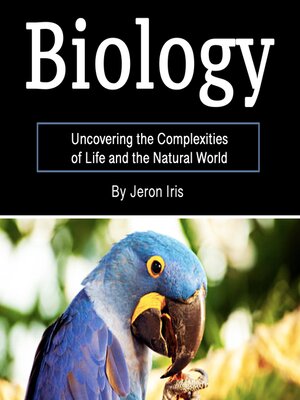Biology
audiobook (Unabridged) ∣ Uncovering the Complexities of Life and the Natural World
By Jeron Iris

Sign up to save your library
With an OverDrive account, you can save your favorite libraries for at-a-glance information about availability. Find out more about OverDrive accounts.
Find this title in Libby, the library reading app by OverDrive.



Search for a digital library with this title
Title found at these libraries:
| Library Name | Distance |
|---|---|
| Loading... |
Biology is the study of life and living organisms, encompassing their structure, function, growth, evolution, and interactions with their environment. This diverse field seeks to answer fundamental questions about life, such as how organisms survive, reproduce, and evolve over time. Understanding biology is crucial not only for gaining knowledge about the natural world but also for addressing issues in medicine, agriculture, environmental science, and biotechnology.
At its core, biology explores the characteristics of life, which include organization, metabolism, homeostasis, growth, reproduction, response to stimuli, and adaptation. All living organisms share these characteristics, though they may express them in various ways. From the microscopic bacteria that live in the soil to the complex human body, biological processes are at work, and each organism plays a part in maintaining the balance of ecosystems.
A key concept in biology is the cell, the basic unit of life. All living organisms are made up of cells, which come in two main types: prokaryotic and eukaryotic. Prokaryotic cells are simpler and lack a nucleus, while eukaryotic cells are more complex and contain a nucleus that houses the organism's genetic material. These cells combine to form tissues, organs, and systems that carry out essential functions within an organism.







